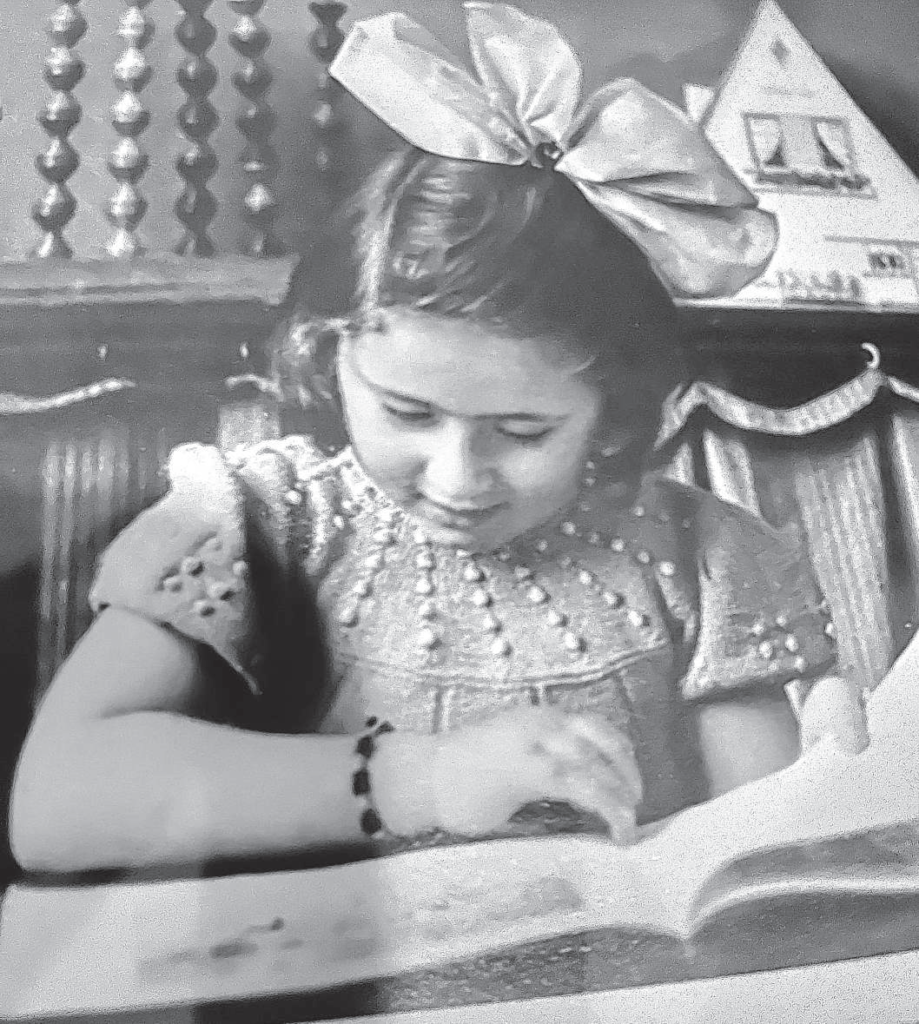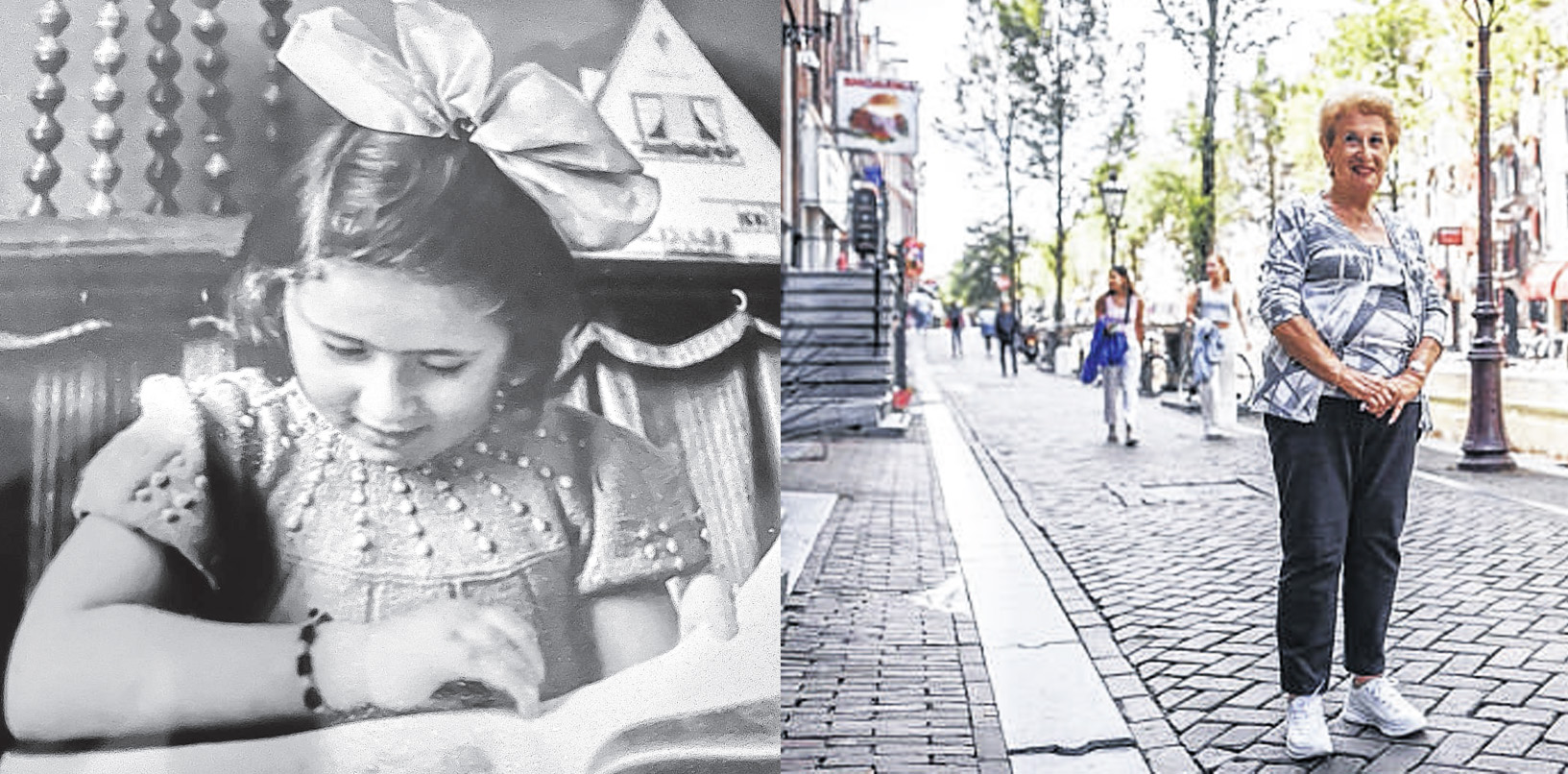Dutch Holocaust survivor Rodi Glass to tell her story.
By Elijah Decious, The Gazette

(CHANGE NOTICE: Mt. Mercy College will be hosting Rodi Glass in the Betty Cherry room in Heritage Hall)
In early 1940s Amsterdam, most Jews didn’t know much about the internment and concentration camps they were being sent to. They didn’t know much about names like Auschwitz-Birkenau, Bergen-Belsen and Sobibor. They just knew they were being “sent east.”
By the time Rodi Glass’ family escaped three stints in internment camps in the Netherlands and in Vittel, France, Americans didn’t know much, either — nor did they care to.
After moving to Chicago in 1951, her family vowed never to speak about it. It was a lesson learned by her maternal grandfather after he introduced himself to a new neighbor — explaining a harrowing journey out of Nazi occupation. Glass’ father’s family was entirely murdered by the end of World War II. By the time she was 9, Glass had survived three arrests and a year of imprisonment at internment camps.
“Yes, it was bad here, too,” the American neighbor replied. “We couldn’t get nylon stockings.”
Until the 1980s, the family’s memories were discussed only during Sunday dinners or with the few survivors they knew. But soon, Cedar Rapids can hear her recount the story again.

Eight decades after World War II ended, the 88-year-old’s mission continues.
“In this country, they always thought that the Holocaust only happened in Eastern Europe and Germany. When I came to this country, geography was not a strong point for anybody,” she said. “People had no idea where (the Netherlands) was, what it was, that there were Jews there, how many were murdered, and how bad some of the Dutch were.”
A FAILED ESCAPE

In 1940, the year Nazi Germany invaded the Netherlands, Glass’ grandfather had a plan.
Portugal, neutral throughout the war, was still open to new residents. Her grandfather bought tickets on a ship there, via England, for the whole family. They shipped their possessions ahead of the trip, and he
gave his family an allowance to buy new clothes upon arrival.
“As bad luck would have it, Hitler found out Portugal was helping the Jews. Hitler got wind and said if you keep helping, we’re going to invade,” Glass said. “They closed their border; we never got out.”

In May 1940, one of her most distinct memories was forged at 4 years old by boots stomping the streets.
Through blackout shades, drawn by residents to minimize targets from aerial bombers, her family peeked out the window.
“I can still, in my mind, hear the marching of the boots goose-stepping down the street,” Glass said.
Life changed after that. A progressive series of laws required Jews to register their names and addresses, imposed curfews, restricted their movement in public spaces and required the surrender of money and valuables.

In 1942, her grandfather’s prosperous leather supply store was confiscated by Dutch Nazi sympathizers.
“The temperament of people in that age was that you obeyed the government. You thought they were going to do good for you,” Glass said. “The mentality was so different, that’s what was frustrating.”
THEIR FIRST ARREST
In September 1942, the Dutch police arrested Rodi’s family in the middle of the night, sending them to the eastern Netherlands camp of Westerbork.
Westerbork, long established as a village for Jewish refugees escaping Germany earlier in the war, had been partitioned with a new section for internment.
“They were ordinary, but also extraordinary people — lawyers, poets, cabaret performers, doctors and dentists, musicians. People of so many talents,” Glass said.
“Some of the Dutch Jews helped them. My grandfather gave them money and merchandise from the store to sell.”
And, as luck would have it, her family knew the Nazi officer in charge at Westerbork.
Behind the office tables with lists of names was a young family friend who used to play chess with her uncle. His mother was German, and he probably thought the Nazi party would improve his lot in life, Glass speculated.
“He liked being at our house,” she said. “He gave my mother and father a sign not to show recognition, not to say ‘Hi, how are you?’ My mother pretended not to know him, and he took our names off the list.”
All others in that batch of Westerbork transients were sent to Auschwitz and Sobibor concentration camps. The latter had only one line for its arrivals — straight to the gas chambers.
THEIR SECOND ARREST
Eight months later, the family was again rounded up and sent to the Joodse Schouwburg (Jewish Theater) in Amsterdam, a staging area for deportation.
By then, the family had procured passes they called Sperre, stating the British citizenship of Glass’ mother, which protected the family from removal.
The papers, procured by an attorney friend of the family, came at a dear cost: 120,000 guilders (about $120,000) per person in 1943. They needed 11 passes for the family.
But her grandfather had another card up his sleeve.
After being not completely compliant with rules to turn valuables over to the Germans, he withdrew deposits made with trusted family friends to supply the more than $1.3 million needed.
“We were lucky people,” Glass said. “My grandfather never went past sixth grade, but he was a genius.”
THEIR THIRD ARREST
The reprieve would last only four months. By September 1943, they were once again imprisoned in Westerbork, whose abject conditions mirrored the typical concentration camp.
In March 1944, they were sent to Vittel, France, to be held as hostages in exchange for German prisoners
of war. They remained there until they were liberated in September 1944. Westerbork, which also held Anne Frank that year, was not liberated by Canadian forces until April 1945. After 100,000 Jews and 245 Roma were transported through it, only 876 inmates remained.
Glass’ family returned to Amsterdam, where they were assigned living spaces in former orphanages cleared by Nazi extermination, as orphans were another group labeled “undesirables.”
They received government assistance of 10 guilders.
NEVER AGAIN
In the decades since the Highland Park, Ill., resident got married, had children and created a new life, she has given countless talks.
Persuaded by a fellow refugee in the ’80s, Glass finally broke the silence to the Illinois Holocaust Museum & Education Center in Skokie.
In 2022, she returned to Amsterdam to record her story through a program at the Illinois Holocaust Museum.
Her virtual reality film, “Walk to Westerbork,” will be shown to high school students in
Cedar Rapids this month.
The building her grandfather owned still stands today.
But she knows that, despite the best efforts of remaining survivors in their golden years to educate America, another Holocaust could happen again.
“Humankind has not changed. As long as people hate, it’ll happen again,” she said.
In fact, she believes that it never truly stopped.
“That saying ‘never again,’ is a useless saying. The ink wasn’t even dry on the peace treaties for World War II and there was already genocide in other parts of the world. It never stopped,” Glass said.
“Genocide never stops. As long as there’s hate and ignorance, it’s going to keep going.”
IF YOU GO
The Thaler Holocaust Education Trust welcomes Holocaust survivor Rodi Glass to share her story in Linn County twice in April.
Glass will speak to in-person attendees via video link on two dates:
April 22 at 7 p.m. during a Yom HaShoah Service at
Betty Cherry room in Heritage Hall)
Mount Mercy University
1330 Elmhurst Dr. NE, Cedar Rapids.
April 23 at 6:30 p.m. at
Thomas Commons
Cornell College
810 Commons Circle SW,
Mount Vernon.
